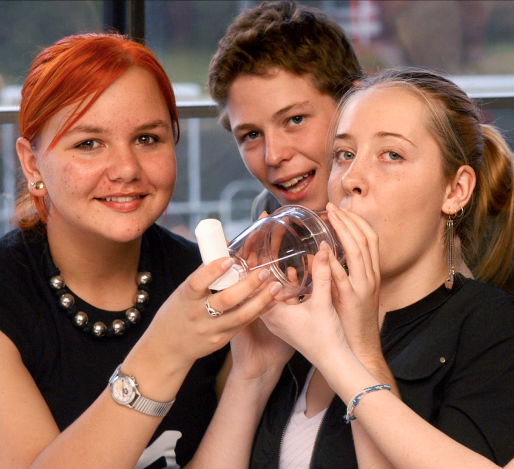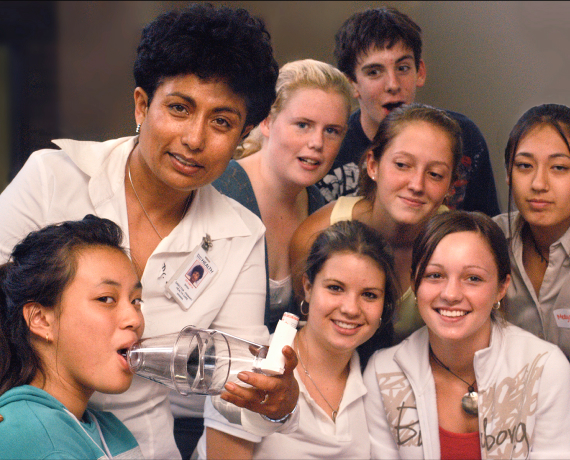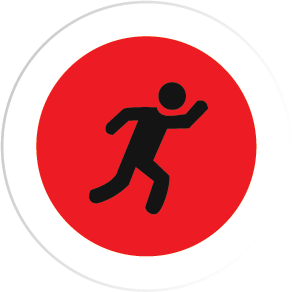Let’s make school a healthier place!
Learn more about our award-winning programs, and contact us to sustainably promote health, from student to student, at your school.
Resources for teachers, health professionals and students looking to promote health in their schools and communities. Learn more about our work, including out flagship programs, SALSA and Triple A.

Breath of life – a video resource for Triple A; Adolescent Asthma Action!

Breathe easy – a video resource for Triple A; Adolescent Asthma Action.

In the lead-up to the finals, Ryan has some choices to make if he is to be the forward for his team … This short movie drama teaches students valuable health and activity lessons that they expand upon during SALSA workshops. Watch the video here!

This study compared the impact of an evidence-based asthma health promotion program (the Adolescent Asthma Action or Triple A Program) with an asthma problem-based learning (PBL) case on asthma knowledge, confidence and skills of final year pharmacy students.

The burden of asthma differs from country to country and within populations. The factors that influence this variation include asthma prevalence and severity, aspects of healthcare services (such as accessibility, quality and utilisation) and social demographic factors (such as income inequality, cultural and linguistic diversity and indigenous populations). The identification of individuals and populations that are ‘harder to reach’, ‘special’ or at greater risk of poor asthma outcomes therefore depends on how the burden of asthma and its management are measured. Meeting the challenge of educating harder-to-reach populations with asthma is the focus of this article.

Asthma is a major health problem among adolescents. Prior studies have identified substantial morbidity from asthma and a generally poor understanding of asthma among adolescents. There is a need to develop educational interventions to address these issues.